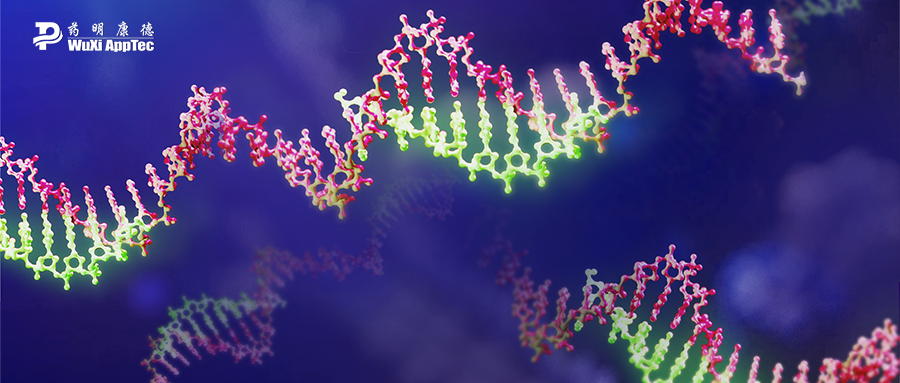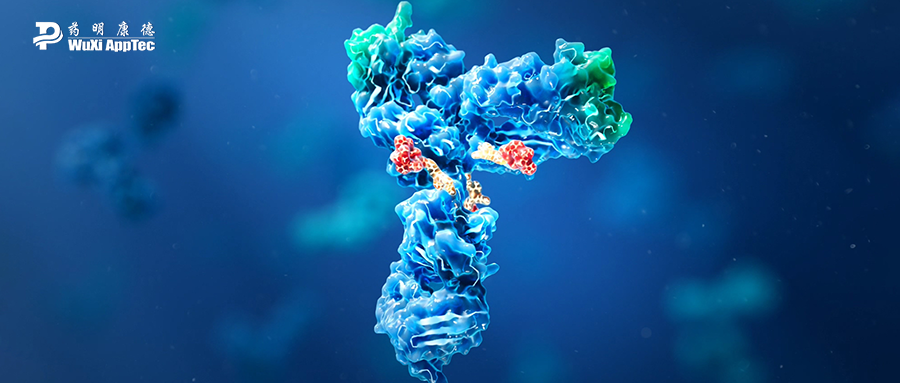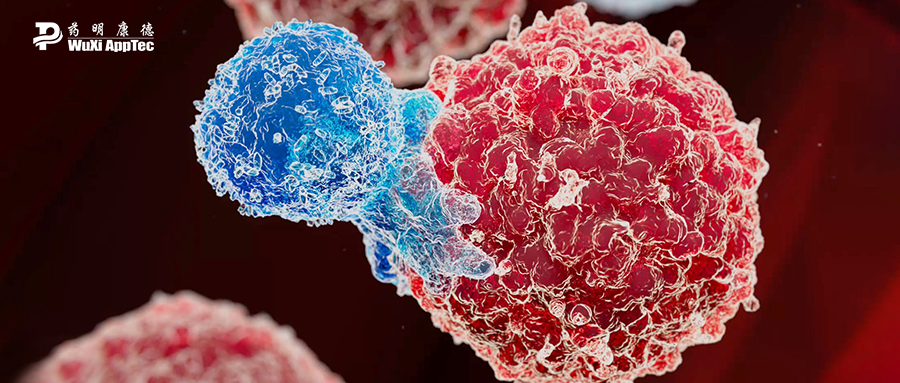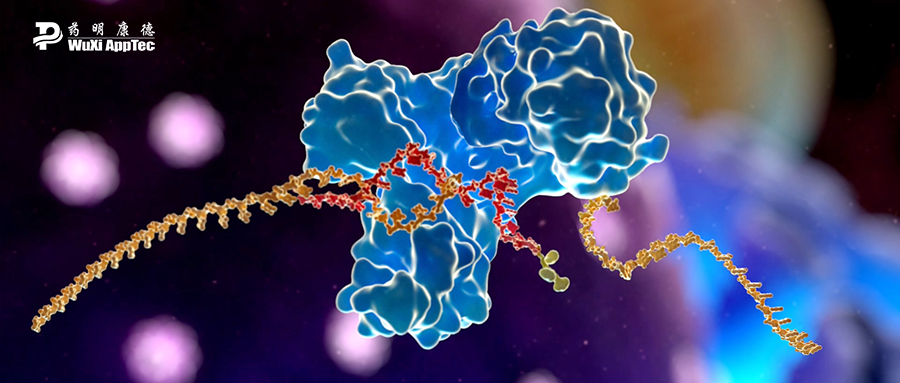Preclinical Testing for
New Modalities
New therapeutic modalities offer significant promise in a range of different areas—from neurology and oncology to rare genetic disorders—and across therapies, delivery systems and vaccines. Our comprehensive preclinical testing services cover the full spectrum of needs for new modalities, from discovery through IND, helping advance your novel therapeutic further, faster.
Preclinical Testing for New Modalities by WuXi AppTec Lab Testing Division
IND-Enabling Packages
In Vitro Studies
In Vivo Studies
PROTAC
Proteolysis Targeting Chimeras (PROTACs) offer substantial potential, expanding therapeutic targets and addressing unmet needs in conditions such as cancer, neurodegenerative disorders, and genetic diseases. We have years of experience in PROTAC and have completed thousands of both in vitro and in vivo studies.


Oligonucleotides
Oligonucleotides are short DNA or RNA fragments, single or double-stranded, with potential applications in neurology, oncology, viral infections, and rare genetic disorders. We’ve supported 80+ oligo candidates through IND-enabling, and can cover all your preclinical studies needs across bioanalysis, PK & PD, and safety assessment.
ADCs
Antibody-drug conjugates (ADCs) can be a versatile, precise, and effective option for a range of diseases and indications, specifically in cancer treatment. Our experience includes supporting more than 100 ADC candidates through IND-enabling and many more through various preclinical studies.


Peptides
Peptides are a unique class of pharmaceuticals with significant potential for treating a range of diseases, including metabolic disorders, cardiovascular issues, cancer, and infectious diseases. We’ve supported more than 60 peptide candidates through IND-enabling and have completed thousands of both in vitro and in vivo studies for peptide programs.
Peptide-Drug Conjugates
Peptide-drug conjugates (PDCs) show great promise in targeted therapy applications, including cancer and metabolic disorders. Their precision and therapeutic potential enhance personalized medicine and help developers address unmet medical needs.


CAR-T
Chimeric antigen receptor (CAR)-T therapy can play a significant role in advancing cancer treatments, including hematologic malignancies such as acute lymphoblastic leukemia (ALL), chronic lymphocytic leukemia (CLL), and non-Hodgkin lymphoma (NHL). Our end-to-end testing services cover the full spectrum of needs from discovery to IND and NDA.
mRNA
mRNA offers diverse and significant opportunities across a range of therapeutics, delivery systems, and particularly, vaccines. We’ve supported dozens of mRNA candidates with both in vitro and in vivo studies, and have ushered more than 20 through IND-enabling.

Frequently Asked Questions
Why is preclinical testing critical for new therapeutic modalities?
Preclinical testing is essential for new therapeutic modalities to evaluate their safety, efficacy, pharmacokinetics, and pharmacodynamics before human trials. It helps identify potential risks and optimize formulations, ensuring that only the most promising and safe candidates progress to clinical trials. This step minimizes the likelihood of adverse effects and increases the chances of successful outcomes in human studies.
What are the unique challenges in preclinical testing of new modalities?
New therapeutic modalities often present unique challenges, such as ensuring stability, efficient delivery, and targeted action. Each modality, whether it’s a PROTAC, oligonucleotide, ADC, peptide, peptide drug conjugate, CAR-T, or mRNA, has specific properties that require tailored approaches to evaluate their pharmacological and toxicological profiles. Additionally, addressing immunogenicity, off-target effects, and scalability for clinical production are significant challenges.
How do you ensure the stability and bioavailability of new modalities during preclinical testing?
Stability and bioavailability are ensured through rigorous testing under different conditions, including temperature, pH, and exposure to enzymes. Formulation studies are conducted to develop stable delivery systems (e.g., lipid nanoparticles for mRNA or ADC linkers). Bioavailability is assessed through pharmacokinetic studies that measure the absorption, distribution, metabolism, and excretion (ADME) of the therapeutic.
What regulatory guidelines must be followed for preclinical testing of new therapeutic modalities?
Preclinical testing must adhere to regulatory guidelines set by agencies such as the FDA (Food and Drug Administration) in the US, EMA (European Medicines Agency) in Europe, and other relevant authorities. These guidelines include conducting Good Laboratory Practice (GLP)-compliant studies, performing comprehensive toxicology assessments, and documenting all findings in detail. Specific guidance
documents outline requirements for different modalities.
What are the key considerations for the design and optimization of new therapeutic modalities in preclinical research?
Key considerations include:
- Target specificity: Ensuring the therapeutic precisely interacts with its intended target.
- Stability: Developing formulations that maintain stability in physiological conditions.
- Delivery: Creating effective delivery systems that reach target cells or tissues.
- Efficacy: Demonstrating the therapeutic effect in relevant disease models.
- Safety: Identifying and mitigating potential toxicities and adverse effects.
How do you address potential off-target effects during preclinical testing of new modalities?
Potential off-target effects are addressed through comprehensive in vitro and in vivo studies. High-throughput screening and bioinformatics tools are used to predict and identify unintended interactions. Functional assays and advanced imaging techniques help monitor off-target effects. Proteomics and genomics analyses are conducted to assess the broader impact on biological systems.
What are the specific considerations for preclinical testing of biologic vs. small molecule new modalities?
For biologics, considerations include immunogenicity, stability, and complex manufacturing processes. Biologics often require specialized assays to assess protein folding, glycosylation, and biological activity. For small molecules, the focus is on chemical stability, metabolic pathways, and potential drug-drug interactions. Both require robust pharmacokinetic and toxicological evaluations, but biologics may need additional immunotoxicity and bioanalytical assessments.
How do you handle the transition from preclinical testing to clinical trials for new therapeutic modalities?
The transition is handled by compiling all preclinical data into an Investigational New Drug (IND) application, which is submitted to regulatory authorities. This includes detailed reports on safety, efficacy, pharmacokinetics, and toxicology studies. Collaboration with clinical experts ensures the design of early-phase clinical trials that address potential risks identified in preclinical testing. A well-defined manufacturing and quality control process is also established to ensure consistent production of the therapeutic for human studies.
Let’s Talk About Your Novel Candidate
Have questions? Need specific assays? Talk to an expert today about your new modality needs.